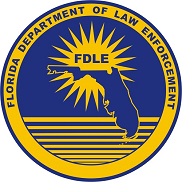



SANFORD – You wouldn’t drop off an 11-year-old child at a shopping mall alone and on their own, would you?
That’s essentially what parents are doing when they let their young children surf the Internet unsupervised in their homes, said Special Agent Frank Heinzmann, of the Florida Department of Law Enforcement’s Cyber and High Tech Crimes Squad.
Heinzmann’s specialty is Internet crimes against children and he gave an informative and important presentation on the subject during the August meeting of the Seminole Prevention Coalition.
“The Internet is probably the greatest double-edge sword ever,†Heinzmann remarked. The global system of computer networks offers a vast array of useful information. But it also contains many dangers, such as child sex predators, who find and groom their victims online.
“These guys are everywhere,†said Heinzmann, who added that last year there were about 1,500 computers advertising child pornography in Orange County alone.
 The FDLE squad works with the National Center for Missing & Exploited Children® (NCMEC), (link: www.missingkids.com) and is a member of the Internet Crimes Against Children Task Force (link: www.icactaskforce.org), a network of 61 coordinated Task Forces representing more than 3,000 Federal, state and local law enforcement and prosecutorial agencies.
The FDLE squad works with the National Center for Missing & Exploited Children® (NCMEC), (link: www.missingkids.com) and is a member of the Internet Crimes Against Children Task Force (link: www.icactaskforce.org), a network of 61 coordinated Task Forces representing more than 3,000 Federal, state and local law enforcement and prosecutorial agencies.
“No one agency can take this on by itself,†Heinzmann said. “Unfortunately, we are very busy.â€
According to NCMEC, 1 in 7 children who go online will get solicited by a child sex predator, 1 in 3 will be exposed to unwanted sexual material, and 1 in 25 will get a request from a child sex predator to meet in person.
Also, 1 in 5 girls and 1 in 10 boys will be sexually victimized before
they reach the age of 18. That victimization can range from sexually explicit pictures to sexual battery, and only 1 in 3 victims will come forward.
There are 620,000 registered sex offenders in the United States and 100,000 are non-compliant and/or missing, Heinzmann added. Finally, two thirds of sex offenders in prison victimized children.
Child sex offenders use the Internet to network with like-minded offenders, trade child porn and gain access to children, Heinzmann
said. Oftentimes, these predators will hide their true identities in order to make friends with children online.
The danger areas that parents should beware of are:
Chat rooms, which are now accessible via smart phones
Peer-to-peer (P2P)Â file-sharing networks, such as Kazaa, LimeWire and Shareaza
Online video games
Social networking sites, such as Facebook, Myspace and MeetMe
Smart phones, where kids can access the Internet, text and use photo apps like Snapchat
Again, Heinzmann urges parents to prevent their children from going online unsupervised.
Parents should make sure their children’s computer screens are visible to them. They should also utilize parental control software, such as Net Nanny and WebWatcher for computers, and My Mobile Watchdog for smartphones.
“If something doesn’t look right to you, tell somebody,†Heinzmann added.
If you suspect your child could be the victim of an Internet pedophile, call your local law enforcement agency. You can also visit Cybertipline.com, which will direct you to an agency in your area, or Missingkids.com. To learn how to teach children to be safe on the Internet visit Netsmartz.org, and go to SecureFlorida.org for more tips.